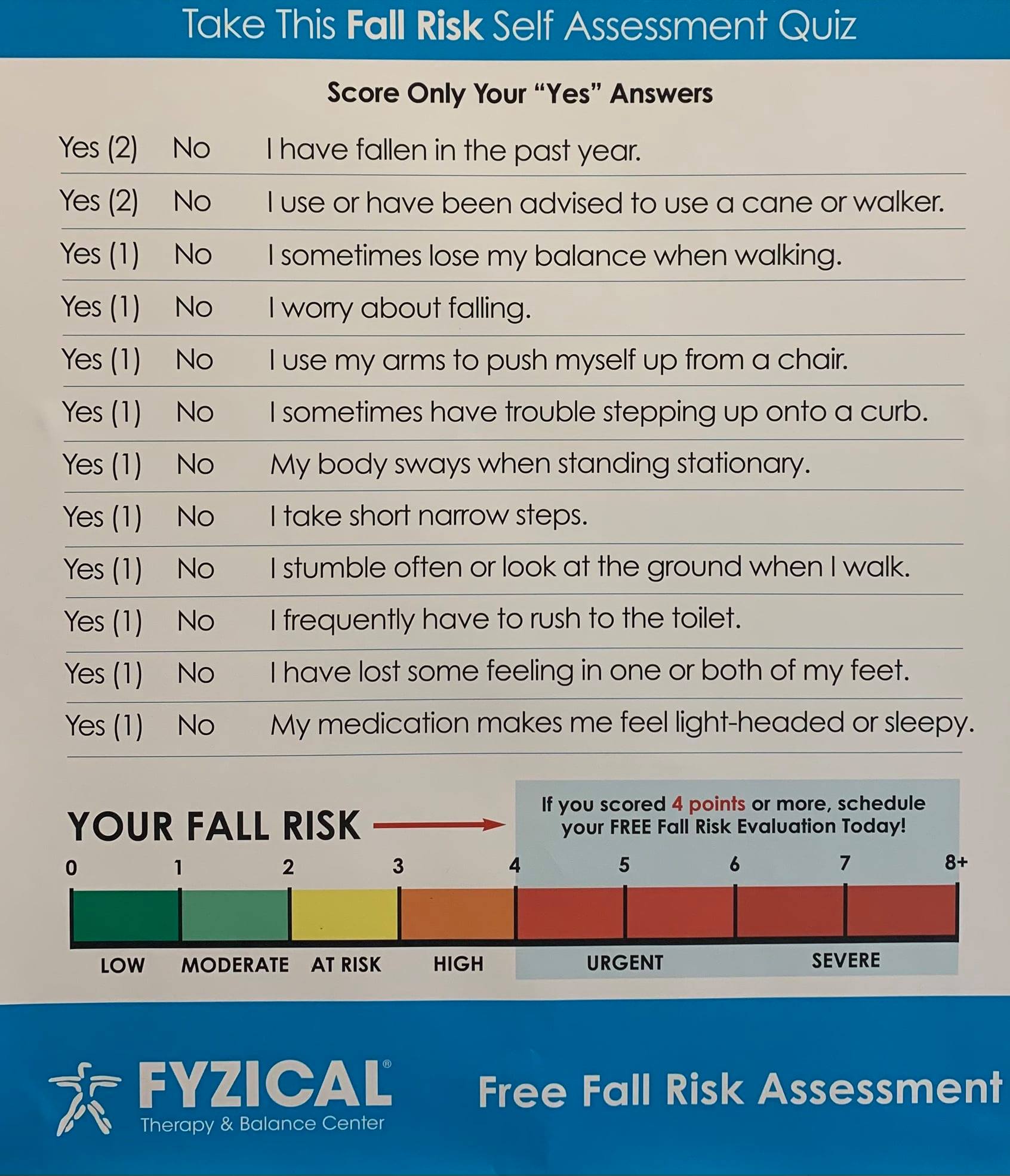10 Easy Facts About Dementia Fall Risk Described
10 Easy Facts About Dementia Fall Risk Described
Blog Article
Dementia Fall Risk for Dummies
Table of ContentsThe 25-Second Trick For Dementia Fall RiskThe 25-Second Trick For Dementia Fall RiskExcitement About Dementia Fall RiskUnknown Facts About Dementia Fall RiskThe smart Trick of Dementia Fall Risk That Nobody is Discussing
You might be worried since you've had a loss prior to or due to the fact that you've seen you're starting to feel unsteady on your feet. You may have seen adjustments to your health and wellness, or just seem like you're reducing down a little. Whatever the factor, it isn't unusual to end up being careful and shed self-confidence, and this can quit you doing the points you utilized to do and make you really feel extra separated.If you've had a fall or you've begun to really feel unstable, inform your medical professional even if you really feel great otherwise. Your doctor can inspect your balance and the way you stroll to see if improvements can be made. They might be able to refer you for a falls danger analysis or to the falls prevention solution.
This details can be gotten with meetings with the person, their caregivers, and a testimonial of their clinical records. Begin by asking the individual regarding their background of falls, including the frequency and scenarios of any recent drops. Dementia Fall Risk. Inquire about any type of flexibility issues they may experience, such as unsteady or problem walking
Conduct a complete review of the person's medicines, paying particular attention to those recognized to raise the threat of drops, such as sedatives or drugs that reduced high blood pressure. Figure out if they are taking multiple medications or if there have been current modifications in their medication routine. Review the individual's home atmosphere for possible risks that can boost the threat of drops, such as bad lighting, loose carpets, or absence of grab bars in the shower room.
The Only Guide for Dementia Fall Risk
Guide the individual with the loss danger assessment type, discussing each question and taping their feedbacks accurately. Guarantee that the individual comprehends the objective of the analysis and feels comfy offering straightforward solutions. Determine the complete danger score based on the feedbacks supplied in the evaluation type. Figure out the person's risk category (reduced, medium, or high) based upon the total score and the visibility of automated risky standing variables.
On a regular basis check the individual's development and reassess their danger of drops as required. Offer continuous education and assistance to promote security and lower the risk of drops in their everyday living activities.
Numerous researches have revealed that physical therapy can assist to decrease the danger of falling in adults ages 65 and older. In a brand-new research study (that looked at drops danger in women ages navigate to this site 80 and older), scientists calculated the financial influence of picking physical treatment to avoid falls, and they discovered that why not look here doing so conserves $2,144, including all the hidden expenses of your time, discomfort, missed out on life occasions, and the bucks paid for solutions.
The Best Strategy To Use For Dementia Fall Risk
Examining your balance, stamina, and walking capacity. A home safety and security assessment. Based on the examination results, your physical specialist will certainly design a plan that is customized to your certain needs.
Older grownups who have difficulty strolling and speaking at the exact same time go to a greater risk of falling. Dementia Fall Risk. To assist increase your safety and security throughout day-to-day activities, your physical specialist might make a training program that will certainly test you to keep standing and strolling while you do an additional job. Instances consist of walking or standing while counting in reverse, having a conversation, or bring a bag of grocery stores
Set objectives for boosting their physical task. Work out a lot more to boost their strength and balance. These programs usually are led by volunteer coaches.
Some Known Facts About Dementia Fall Risk.

Measles, or rubeola, is a very transmittable, severe viral contagious condition caused by the measles infection. Some individuals assume of measles as just a rash and fever that clears in a couple of days; nevertheless, like this measles can trigger severe health issues, especially in children more youthful than 5-years-old. The most effective defense versus measles is the measles, mumps, and rubella (MMR) injection.
Falls are a typical cause of injury amongst older adults.
The Basic Principles Of Dementia Fall Risk

She has no background of drops, her gait is consistent, and she nullifies with no concerns. The previous nurse states that she calls for support to the shower room when she needs to go.
Examples of common loss interventions/measures consist of: Guaranteeing a person's essential items are within reach. Beyond understanding just how to make use of the Johns Hopkins Fall Risk Evaluation Device, it's important that facilities integrate its use into a more extensive autumn avoidance plan.
Report this page